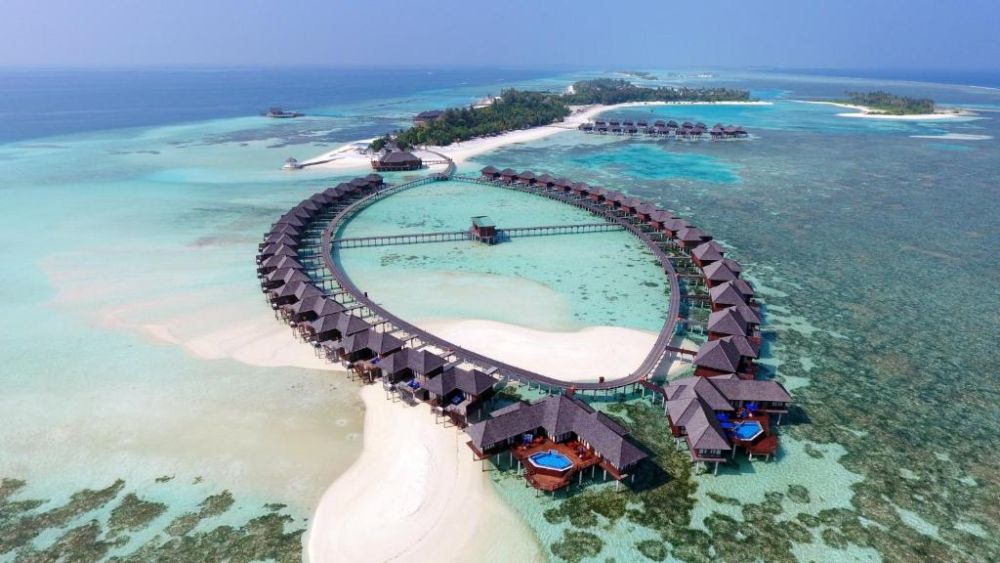

The Maldives, a tropical paradise renowned for its vivid blue seas, white sandy beaches, and diverse marine life, has long been a coveted destination for tourists seeking luxury and tranquility. Olhuveli, located in the South Malé Atoll, is one such island within the Maldives archipelago that has seen a significant transformation in its tourism landscape.
Tourism in the Maldives officially began in 1972, and Olhuveli's journey as a tourist destination followed shortly afterwards. Initially, the concept of tourism in areas like Olhuveli focused on the pristine natural environment with minimal impact on the local ecosystem. Visitors stayed in simple accommodations, which allowed them to experience the beauty of the island's untouched beaches and the surrounding waters.
As word spread about the unique allure of the Maldives, more luxurious resorts began to emerge in the 1980s and 1990s, including in Olhuveliolhuveli. These resorts started catering to high-end tourists by offering overwater villas, private beaches, and exclusive services, setting the standard for the modern Maldivian tourism model that emphasizes luxury and privacy.
Today, Olhuveli is home to several upscale resorts and is known for its expansive lagoons, coral reefs, and the multitude of recreational activities it offers. These include diving, snorkeling, and water sports, as well as spa and wellness facilities, making it a favorite among honeymooners, celebrities, and luxury travelers. The island has come to embody the pinnacle of Maldivian tourism, balancing environmental conservation with opulent hospitality services.
In response to global trends emphasizing sustainability and environmental responsibility, resorts in Olhuveli have adopted eco-friendly practices. Efforts to reduce carbon footprints, waste management systems, and coral reef protection initiatives have become a significant part of Olhuveli's tourism model, aligning with the larger Maldivian strategy of sustainable tourism to safeguard the nation's natural resources for future generations.
Health and Wellness Tourism has become increasingly popular in Olhuveli. Resorts now offer tailored wellness programs that include yoga retreats, spa treatments, and nutritional menus to cater to health-conscious travelers.
Experience-Driven Travel is also on the rise, with guests seeking personalized experiences beyond the standard offerings. Culinary classes, cultural tours, and private island picnics are some of the experiences designed to immerse tourists in the unique qualities of the Maldivian lifestyle and environment.
In light of the global pandemic, Privacy and Seclusion have gained paramount importance among travelers. Olhuveli's naturally isolated location and the exclusive nature of its resorts have made it an attractive destination for those looking to vacation away from crowds.
Moreover, Digital Nomadism has emerged as a recent trend, with resorts in Olhuveli offering long-term stays and amenities conducive to remote work, allowing guests to live and work from a tropical paradise.
In conclusion, the island of Olhuveli has cleverly evolved from a hidden gem into a center of world-class tourism, all while maintaining the delicate balance between luxury and eco-friendliness. It stands as a testament to the Maldives' successful tourism industry, adapting to changing global trends while preserving the natural beauty that originally put it on the map of top global destinations.